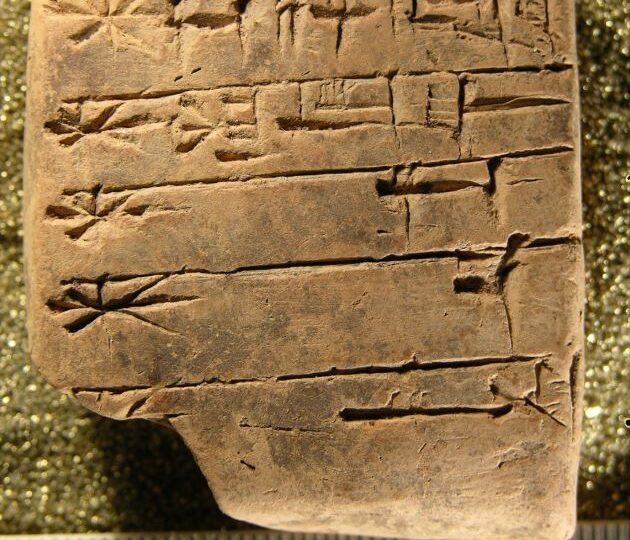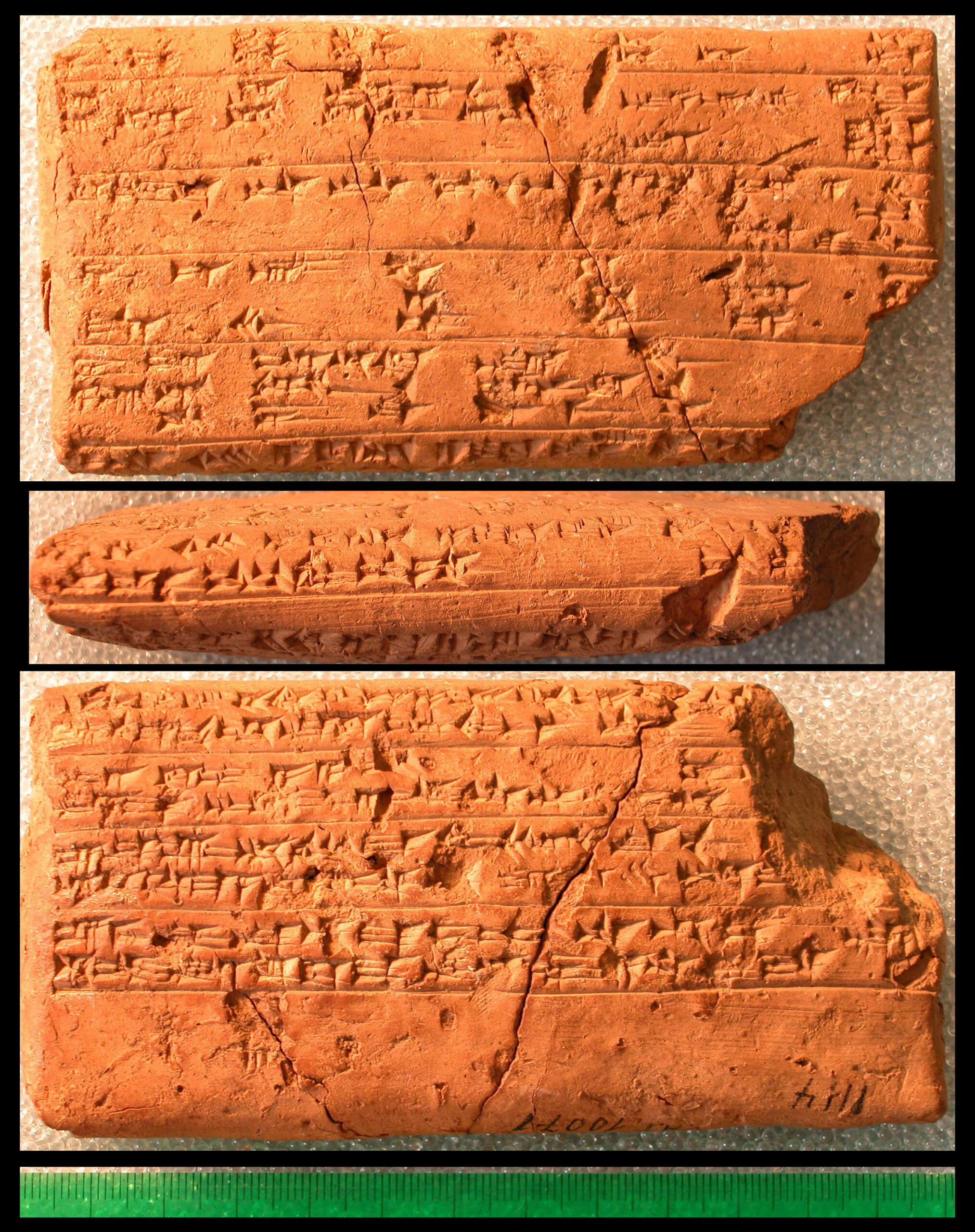This tablet contains a list of divine names from the old Akkadian period, with Enki at the bottom. I’ve been looking forward to today. I’d wanted to write about goat-gods, from Enki (in Akkadia) to Pan (in Arcadia), but I think I’ve found a richer seam in Enki’s connection to the Tree of Knowledge.
Enki, eldest son of Tiamat, is the god of wisdom, credited with “wising up” the peoples of Mesopotamia. But what is wisdom? What is knowledge? What is the character of these two traits? Are they unambiguously good? The Bible doesn’t seem to hold that opinion.
The Bible uses the word “know” to mean carnal knowledge – to know someone “in the biblical sense”. The Hebrew word for to know, yada, has both meanings. So to eat the fruit of the Tree of Knowledge has undertones that aren’t entirely positive, at least in more puritanical interpretations of the book of Genesis.
So what of God and Enki? Some of Enki’s actions inspired the Hebrew God, but there are differences. The God of the Bible tells Adam and Eve that if they eat the fruit of the tree of knowledge they will surely die; Enki, in the form of a serpent, tells the truth – that Eve and Adam would have their minds opened. The God of the Bible both sends a flood to wipe out humanity and give Noah plans for an ark; Enki is not the bringer of the flood, but does tip off the Sumerian version of Noah, Atrahasis. The God of the Bible strikes down the tower of Babel (built by the people for protection against His next deluge) and makes civilisations unable to understand each other; Enki changes the speech in the mouths of people so that their speech is truly one, intelligible to all, like some kind of divine babelfish. Which of these beings has the best interests of humanity at heart?
This myth of the Tree of Knowledge explains consciousness, self-awareness, the capacity to reason. After the question of why anything exists, this is the next biggest question in all of philosophy. Rather than the fall of man, this moment – this bite of forbidden fruit, was a great leap forward to a fuller awareness. And just in closing, fruit was a metaphor for sex in the time of the Sumerians. As with the double meaning of the Hebrew word for to know, the word inbu could mean either sex or fruit and so is ripe for punning. If you’re tempted to think that’s just an ancient thing, have a listen to DH Lawrence about the proper way to eat a fig.

